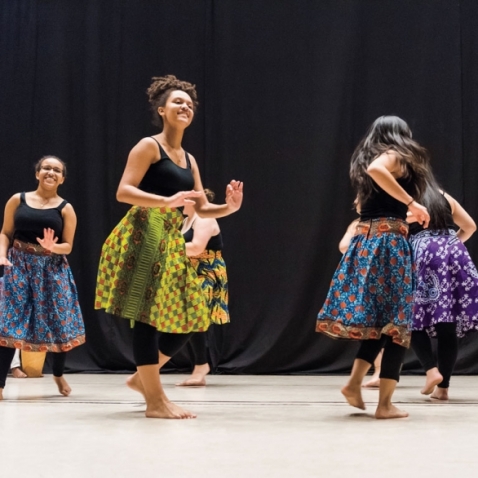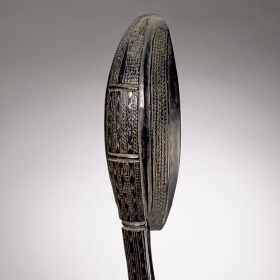Photo by Justin Knight
Jabulani, the Zulu word for “rejoice,” was the theme of the joint Wellesley and MIT African students associations’ Mamaland cultural show on Nov. 5. There was plenty of rejoicing and pride in the Jewett auditorium that evening, as students from both schools sang, played music, modeled clothing, and spoke about their aspirations for the future of Africa. “We wanted something that represented joy, celebration, struggle, triumph, and happiness. That is what [jabulani] means for southern Africans specifically (because that is where the word comes from), and we were glad that we could embody that during the show,” says Zilpa Oduor ’18, one of the students who helped organize the event.
Another goal of Mamaland is to defy the narrative of Africa as single country that is only notable for its wildlife or poverty and other negative things, says Oduor, who moved to the United States from Kenya with her family when she was in middle school. “We show the diversity of talents from different countries across the continent,” she says. About 250 people attended the show—including President Paula Johnson and her family. Afterward, much of the audience went to an after-party in the campus center to keep on rejoicing.







We ask that those who engage in Wellesley magazine's online community act with honesty, integrity, and respect. (Remember the honor code, alums?) We reserve the right to remove comments by impersonators or comments that are not civil and relevant to the subject at hand. By posting here, you are permitting Wellesley magazine to edit and republish your comment in all media. Please remember that all posts are public.